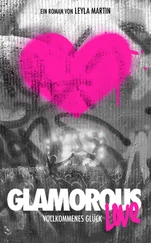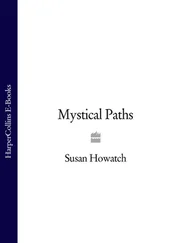THREE CONTENTS COVER TITLE PAGE Susan Howatch COPYRIGHT PART ONE: THE VISION ONE TWO THREE FOUR FIVE PART TWO: THE REALITY BEYOND THE VISION ONE TWO THREE FOUR FIVE SIX SEVEN PART THREE: THE FALSE LIGHT ONE TWO THREE FOUR FIVE PART FOUR: THE LIGHT FROM THE NORTH ONE TWO AUTHOR’S NOTE ACKNOWLEDGEMENTS ABOUT THE AUTHOR PRAISE BY SUSAN HOWATCH ABOUT THE PUBLISHER PART ONE THE VISION Конец ознакомительного фрагмента. Текст предоставлен ООО «ЛитРес». Прочитайте эту книгу целиком, купив полную легальную версию на ЛитРес. Безопасно оплатить книгу можно банковской картой Visa, MasterCard, Maestro, со счета мобильного телефона, с платежного терминала, в салоне МТС или Связной, через PayPal, WebMoney, Яндекс.Деньги, QIWI Кошелек, бонусными картами или другим удобным Вам способом. ‘Ecstasy or vision begins when thought ceases, to our consciousness, to proceed from ourselves. It differs from dreaming, because the subject is awake. It differs from hallucinations, because there is no organic disturbance: it is, or claims to be, a temporary enhancement, not a partial disintegration, of the mental faculties. Lastly, it differs from poetical inspiration, because the imagination is passive. That perfectly sane people often experience such visions there is no manner of doubt.’ W. R. INGE Dean of St Paul’s 1911–1934 Christian Mysticism
‘The danger (of hallucinations) is recognized by the best mystical writers.’
W. R. INGE
Dean of St Paul’s 1911–1934
Mysticism in Religion
I had by this time planned a course of reading and meditation to occupy the hours when I was neither crossing swords with my superior nor attending services in the chapel. The Fordites have imprinted their own idiosyncratic stamp on the Divine Office of the Benedictines, merging Terce with Sext and None with Vespers, but several hours of each day are still spent in choir; a monk must never forget that his chief work is to worship God. However beyond the hours of worship lie the hours of service to others, and normally I was heavily occupied not only with looking after my community but with giving counsel to those outside the Order who sought my spiritual direction. It was odd, even disconcerting, to find myself suddenly with no work on my hands beyond the hours spent in choir. I might have been advised to rest but anyone who has ever attempted to lead a celibate life knows how important it is to keep oneself constructively occupied, so after a prolonged perusal of the library shelves I selected some books which I judged would engage my mind without unhealthily over-exerting it.
I chose Dame Julian of Norwich’s Revelations of Divine Love, not merely because it was one of my favourite classics but because I felt I would be cheered by the writings of a sane practical good-humoured person whose visions had been recognized by the Church. As a masculine counterpoise to Dame Julian’s robust femininity I also chose The Cloud of Unknowing, another of my favourite works. Feeling I should then emerge from the woods of mysticism into the more arid plains of modern theology I avoided the works of Karl Barth, whose preoccupation with God’s transcendence is fundamentally hostile to mysticism, and was about to select the latest book by Reinhold Niebuhr, who parted company with Barth in several important ways, when suddenly I spotted Dean Inge’s The Philosophy of Plotinus.
I was amazed. Plotinus had been a great religious philosopher with a vast influence on Christian Neo-Platonism, but he had been a pagan and Father Darcy had always refused to have Inge’s celebrated masterwork in the house. However on opening the cover of the first volume I found the words ‘Cuthbert Darcy’ inscribed on the fly-leaf. The old fraud! It seemed he had acquired the copy secretly and kept it in his room where it had been discovered after his death. Silently paying tribute to Francis’ broadminded good sense in placing the work in the library, I added both volumes to the collection already in my hands and prepared to retire to my cell, but on my way out I caught sight of a new section devoted to modern psychology.
Francis and I, enjoying a rare moment of unity, had succeeded in convincing our mentor that not all psycho-analysts should be burnt at the stake, and rising to unprecedented heights of eloquence we had argued that we had a religious duty to understand as much about the human mind as was possible in the light of the latest scientific theories. When Father Darcy had declared that the Devil was corrupting intellectual progress by the writings of his servant Freud I had even summoned the courage to say to him sternly: ‘Remember Galileo.’ The Church has been put in some ridiculous positions in the past by turning up its nose at the scientists.
However although Father Darcy had given us permission to read the books we felt were important, he had been adamant that we should keep any work on psycho-analysis under lock and key, and the sight of Francis’ collection now standing bravely on the shelves was certainly a surprise. An even greater surprise was that I felt ambivalent. On the one hand I approved of Francis’ resolution to bring the Order openly into the twentieth century, but on the other hand I was aware that monks were very ordinary men in many ways and might not automatically benefit from such intellectual modernism; I could well imagine my drones feasting on certain passages with a curiosity which was more salacious than spiritual. To my horror I saw Francis had even displayed the volumes of Havelock-Ellis on human sexuality. This work was not without interest to a serious student of human nature, but there were parts of it which even I, the crusader for modern knowledge, had felt inclined to burn. Certainly I believed such a work could only have an unwholesome effect on the average monk.
I suddenly realized I was perturbed to a degree more complex than might have been anticipated, and retiring to my room I tried to analyse my feelings further. After a while I realized I was worried that Francis might be tempted to compensate himself for his spiritual limitations by relying too heavily on psycho-analytical theory. It was a chilling thought. Psychoanalysis can be a useful tool and it had certainly given me numerous important insights during my work as a counsellor, but it is not a substitute for religion and it should always be a servant, never a master. If Francis intended to rely on Freud and Jung instead of on God as he exercised the charism of discernment, then both he and I could well be heading straight for the most profound disaster.
‘No doubt you’ve composed a host of brilliant answers to the questions I posed yesterday,’ said Francis when I returned to his room on the following afternoon, ‘but since my aim at present is not to initiate a debate but to illuminate your situation, I propose we move on to the next topic and discuss your failure to become Abbot-General. I trust you’re not going to deny you were disappointed?’
‘No, Father.’
Francis picked up his pen. ‘What steps did you take to adjust to this disappointment?’
‘I had a long talk with Aidan before the funeral and made a full confession to him. That helped. Aidan’s a wily old fox. He never said anything so obvious as: “You’ve got to forgive the old boy in order to be at peace with his memory,” but he paved the way to forgiveness by persuading me to admit how much I’d have disliked being Abbot-General and how far more suitable you were for the job.’
Читать дальше












